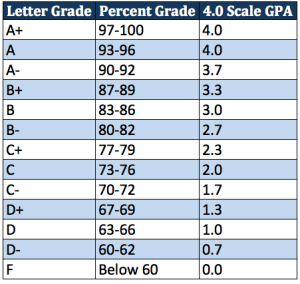
So, there you are: a happy, healthy college student. You’re attending lectures, writing papers, going to parties, holding down internships — and planning to go to business school someday.
But that day seems far in the future, and you’re not worried about taking the GMAT yet.
You known you’ll need to get some work experience before you can start putting together b-school applications, so taking the GMAT while you’re still in college doesn’t even make sense — or does it?
Actually, it does. GMAT scores don’t expire for five years, so if you take the test in your junior or senior year, you’ll still have time to gain work experience before enrolling in an MBA program.
And taking the test while you’re still in college all but guarantees a higher score. Here’s why.
You’ll Never Have Better Test-Taking Skills
As a college student, you’re accustomed to taking tests regularly. You probably have at least two exams per class each semester. You’re also taking tests and quizzes pretty regularly. You’ve been accustomed to taking regular tests for years now because you’ve been in school nearly all your life.
That means your test-taking skills are at their zenith. You know how to effectively study for a test.
You understand how to use study guides to prepare. You probably also know how to use practice tests to the best advantage. You know how to interpret test questions. You’re familiar with the testing environment. You have an established and battle-tested routine that you use to prepare for tests and keep yourself calm, both in the run-up to an important exam and during the exam itself.
As soon as you finish school, all of the test-taking skills you’ve learned over the past 12 to 16 years are going to start deteriorating.
If you graduate and work for a few years before sitting your GMAT, it’ll be harder to get into the groove of that old routine. Your study skills will be rusty. You’ll be unfamiliar with the testing environment and the test itself. You’ll suffer more anxiety.
All of these could hold you back from your best score.
Your Knowledge Is Fresh
Taking the test early is one of the most common GMAT tips for another good reason: When you’re still in school, your knowledge of the subject matter on the test is still fresh.
Most test-takers, at least those who speak English as a first language, struggle more with the quant section than the verbal section.
You learned the math covered in the test in high school, or in an intro mathematics class in college, but the further in the past those courses are for you, the more you’ll have forgotten and have to relearn.
Taking the test early ensures you can maximize your score while minimizing your study time.
You Can Better Plan Your Application Strategy
Your GMAT score is an important part of your b-school applications, and that’s why many students invest months and some spend thousands on studying and tutoring to prepare.
Just taking the test is expensive, and you may be leery of spending the money if you don’t think you can earn your best score. But GMAT scores are just one component of a successful b-school application, and knowing your score early on can help you form a plan of attack that will get you a spot in the b-school of your choice, even if your score isn’t as high as it could be.
If you take the test in college and don’t score as well as you’d hoped, you still have plenty of time to keep studying and retake it. Or, if you don’t want to retake it, or you’re concerned that retaking won’t help much, you can take other steps to strengthen your b-school application.
If you’re a junior or senior in college, you’ll have time to plan for internships, extracurricular activities and work experience that will get your foot in the door at the b-school of your choice, even if you don’t have a 700+ score. People get into MBA programs with low GMAT scores all the time, as long as other parts of their application are strong.
Knowing about this weak point in your application will enable you to work with MBA admissions counselors to strengthen your application and your chances.
If you’re planning on going to b-school someday, taking the GMAT while you’re still in college is a great idea. You’ll be better-equipped to excel on the test, and knowing your school early can help you prepare better MBA applications.
Don’t wait; start prepping for the GMAT now, and make your MBA dreams come true.


